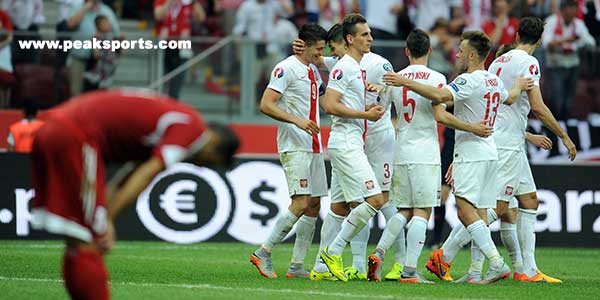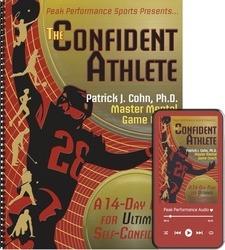
Rebounding from Mistakes Mindset
Your performance has a lot to do with how you handle mistakes during competition.
Mistakes are often trip athletes mentally. Many athletes feel peak performance means perfect performance. This mindset causes a lot of negative emotion, in particular frustration, when the inevitable mistake pops up.
This leads to a split focus–a focus on the past mistakes and trying to perform in the moment! Not the best approach.
Sometimes, athletes feel sorry for themselves after a bad performance. It may be hard to admit, but it happens.
The following are various scenarios in several sports:
- A gymnast who fell off the balance beam in a major competition and, immediately, had the feeling, “I always mess up.”
- A baseball player who struck out with the bases loaded in the later innings of a game and said to themselves, “I can’t do anything right?”
- A basketball player who missed several free throws in a game and told themselves, “I am the reason our team lost the game?”
- A soccer player who had a bad playoff game and thought, “I always choke under pressure.”
Maybe you can identify with these scenarios at some level. Rebounding from mistakes and mishaps is everything in sports.
Nothing is perfect nor will it ever be. So your response to mistakes, losses and mishaps shape your mindset and performance and can linger to the next several competitions.
Let’s use a sport analogy to really drive home this point…
In basketball, it is unreasonable to expect to make EVERY shot. That is the reason REBOUNDING is so important.
You hear coaches, all the time, tell players to follow their shots in order to rebound and put the ball in the hoop.
If a player just hung his head after a missed shot (or felt sorry for himself), he would miss the opportunity to rebound and be successful. The only way to rebound is, first, stop feeling sorry for yourself.
This is true for all sports, even professional athletes…
For example, in the soccer world, Luton Town Football Club of the Championship League lost four consecutive soccer matches. After the last loss, 3-0, to Reading FC, Luton manager Graeme Jones talked about how the team gave up a bit and felt sorry for themselves.
JONES: “We started the game really well and then they scored. Then mentally, we felt sorry for ourselves, ‘what we’re going to do?’ and not enough attacking threat.”
Jones stated he would like to bring in a Mental Training professional to help his team overcome this obstacle his team currently faces.
JONES: “We’re at a point now where maybe we might have to think about going down that [mental training] route, because even if you look at last weeks’ goals, Nottingham Forest didn’t create their two goals, we gave them them. Today, we gave them three goals, so it’s an area that I’ve looked at deeply, it’s an area that I understand, it’s a reality for the mental step in the Championship [League].”
Rebounding from mistakes is a learned mental skill–you are not helpless. So with the help of a Mental Game Coach, you can develop mental skills to overcome mistakes and keep your head in the game.
How to Rebound from Mistakes:
Rebounding is a matter of responding to mistakes in a new way. Start by asking yourself a different question: “Can I really be perfect?” “Do others expect me to be perfect?” The answer is NO.
First, challenge yourself about what’s so awful about the mistake?
Next, remind yourself that you can’t change the past. The only thing you can do is more forward and focus on the next play, skill, pitch, or shot.
Related Sports Psychology Articles
- How to Benefit From Mistakes in Competition
- How to Refocus After Making Mistakes
- How to Use Mistakes to Improve Performance
*Subscribe to The Sports Psychology Podcast on iTunes
*Subscribe to The Sports Psychology Podcast on Spotify
Download a free sports psychology report to improve your mental game!
Learn more about our one-on-one mental game coaching.
The Confident Athlete

“The Confident Athlete” consists of 2 audio programs that include 14 days of confidence fueling exercises and a simple to follow workbook that guides you through the 14 days, helps you apply the strategies, and customizes the exercises to your personal needs.
Let me help you put a stop to the confidence leak. You can learn to have greater levels of confidence in competition than you do in practice by identifying the specific ways you undermine your own confidence and how to convert your practice confidence into COMPETITIVE CONFIDENCE.
“The Confident Athlete” is a ground-breaking system to teach you how to think like a champion and have ultimate self-confidence every time you step on the playing field, court, track, or course. The confident athletes was developed for any athlete – junior to professional –that wants to gain confidence. However, coaches and sports parents can learn how to teach others to perform with ultimate confidence. Use my program if you want to bust a slump or just wanting higher or more consistent levels of self-confidence.
